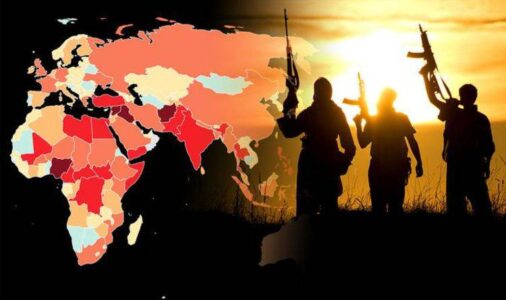
Terrorists are weakened but not yet defeated
A recording released by ISIS on Sunday has sparked concerns that the group is planning more attacks in the Middle East. In the recording, an ISIS spokesman calls for the terrorist organisation’s supporters to target Western countries and Saudi Arabia, the latter because the kingdom has opened its airspace for Israeli flights.
While such calls to violence are alarming, and merit investigation by security officials, they do not signal a comeback for ISIS. On the contrary, such threats are normally an example of the organisation, which has lost virtually all of its territory in Iraq and Syria, flexing its muscles to project a false image of power.
At its height, ISIS had conquered a territory roughly the size of Britain, ruling over it with an iron fist. Its reign of terror in Iraq ended in 2017. In March 2019, the US and their allies drove the group out of its last Syrian bastion, the town of Baghouz along the Iraqi border.
Its most senior members have since been forced back into hiding. Given these monumental defeats, ISIS’s latest recording is more like a publicity stunt than it is a serious declaration of war.
Nevertheless, security forces and law enforcement are monitoring its activities very closely. Speaking to the press in July, the Deputy Commander of Operation Inherent Resolve, the US task force fighting ISIS in Syria and Iraq, said the terror group had a “residual presence” in rural Syria.
“The remnants of Daesh that remain, they’re largely ineffective,” Maj Gen Kenneth P Ekman said. “Daesh has been reduced to a low-level insurgency.”
While ISIS territorial presence has been stamped out, its ideology remains very much alive. Last Friday, a radicalised Chechen refugee beheaded a French teacher in the Parisian suburbs. Two weeks earlier, the victim, Samuel Paty, had shown a controversial cartoon depicting the Prophet Mohammed to pupils in a discussion about free speech.
The satirical magazine Charlie Hebdo, which originally published the cartoon, had been attacked by members of Al Qaeda in the Arabian Peninsula in 2015, in a brutal rampage that killed 12 people. The people of France were traumatised again that same year, when ISIS supporters stormed several locations in the capital, killing 130 people.
Abdoulakh Anzorov, the man who beheaded Paty, was only 18 years old, but he had disturbing links to ISIS. His half-sister had travelled to Syria in 2014 to join the group. Footage of Anzorov admitting to the gruesome murder and showing the victim’s severed head was also shared on ISIS Telegram channels.
These acts of terrorism are unacceptable and they do not represent Islamic teachings in any way. Now that ISIS has been robbed of its territorial gains, world leaders and prominent public figures have a duty to rob it of the last remnants of its influence. It takes more than weapons to stamp out extremists. A different, longer-term battle – for hearts, minds and attention – must also be waged. That battle needs to be fought in the real and the virtual world.
Source: The National News





